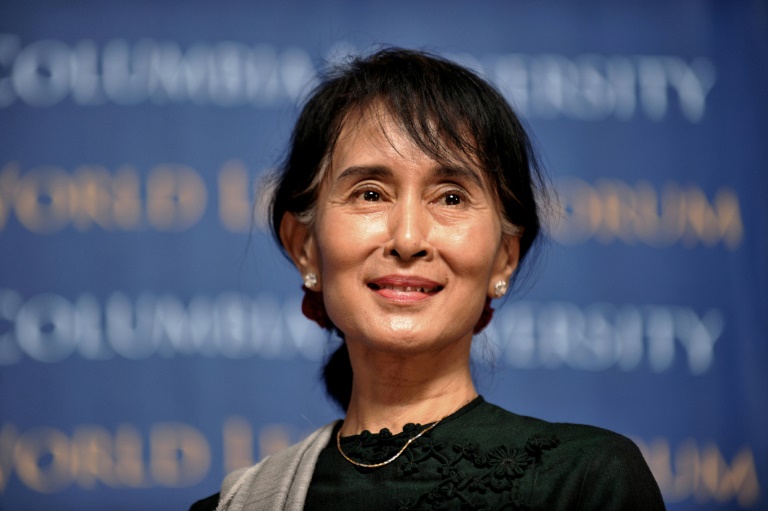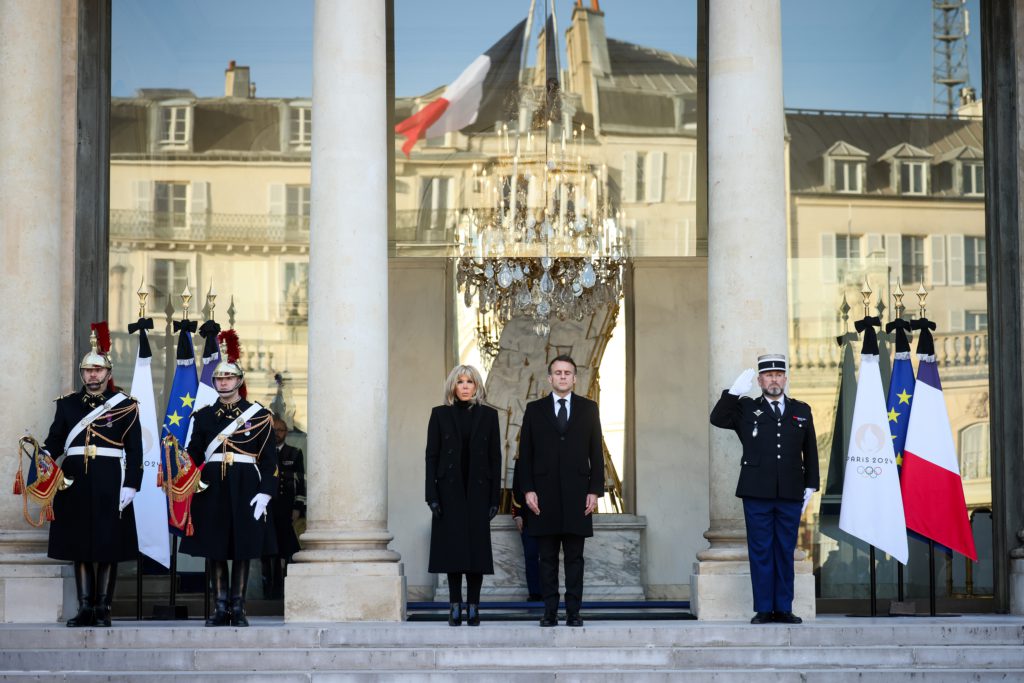The trial of deposed Myanmar leader Aung San Suu Kyi got underway Monday, more than four months after a military coup, with junta witnesses testifying the Nobel laureate flouted coronavirus restrictions and illegally imported walkie-talkies.
Near daily protests have rocked Myanmar since the generals’ February 1 putsch.
A mass uprising has been met with a brutal military crackdown that has killed more than 850 civilians, according to a local monitoring group.
The junta has brought an eclectic raft of charges against the Nobel laureate, including claims she accepted illegal payments of gold and violated a colonial-era secrecy law.
On Monday the court heard a police force major testify that Suu Kyi broke coronavirus restrictions during last year’s elections that her National League for Democracy (NLD) party won in a landslide, her lawyer Min Min Soe told AFP.
Another police major testified on separate charges accusing her of illegally importing and possessing walkie-talkies, she added.
Suu Kyi “paid keen attention” throughout the hearing, another member of her legal team, Khin Maung Zaw said in a statement.
Journalists were barred from proceedings in the special court in the capital Naypyidaw, but an AFP reporter said there was a heavy police presence outside.
Suu Kyi’s lawyers — who have struggled to gain access to their client — have said they expect the trial to wrap up by July 26.
“We are hoping for the best but prepared for the worst,” Khin Maung Zaw told AFP ahead of the hearing.
A separate trial is scheduled to start on Tuesday over sedition charges she faces alongside ousted president Win Myint and another senior member of the NLD.
If convicted of all charges, Suu Kyi, 75, faces more than a decade in jail.
“It is a show trial motivated only by political reasons,” Debbie Stothard, Coordinator of the Alternative ASEAN Network on Burma, told AFP.
“Min Aung Hlaing is determined to lock up Aung San Suu Kyi for the rest of her life. If he could, he would probably charge her under every law available.”
– Cloistered icon –
Suu Kyi spent more than 15 years under house arrest during the previous junta’s rule before her 2010 release.
Her international reputation diminished following her defence of military-led violence against Myanmar’s marginalised Muslim Rohingya community.
But the coup has returned Suu Kyi to the role of cloistered democracy icon.
On Thursday, she was hit with additional corruption charges over claims she illegally accepted $600,000 in cash and around 11 kilos of gold.
Her lawyer Khin Maung Zaw dismissed the new charges — which could see Suu Kyi hit with another lengthy prison term — as “absurd”.
“There is an undeniable political background to keep her out of the scene of the country and to smear her prestige,” he told AFP last week.
“That’s one of the reasons to charge her — to keep her out of the scene.”
Junta leader Min Aung Hlaing has justified his power grab by citing alleged electoral fraud in the November poll won by Suu Kyi’s NLD.
The junta has previously said it would hold fresh elections within two years, but has also threatened to dissolve the NLD.
It has also responded with force to a growing mass movement against its rule — shooting protesters, targeting journalists and shutting down news outlets.
Monday saw the release of a American journalist detained since March after charges against him were dropped, his lawyer told AFP.
Nathan Maung, who founded the local Kamayut Media outlet, has been detained under a colonial-era law that criminalises encouraging dissent against the military.










